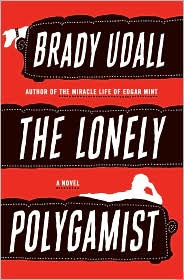New from Doubleday: Tell-All by Chuck Palahniuk.
The hyperactive love child of Page Six and Whatever Happened to Baby Jane? caught in a tawdry love triangle with The Fan. Even Kitty Kelly will blush.Best books: Chuck Palahniuk.
Soaked, nay, marinated in the world of vintage Hollywood, Tell-All is a Sunset Boulevard–inflected homage to Old Hollywood when Bette Davis and Joan Crawford ruled the roost; a veritable Tourette’s syndrome of rat-tat-tat name-dropping, from the A-list to the Z-list; and a merciless send-up of Lillian Hellman’s habit of butchering the truth that will have Mary McCarthy cheering from the beyond.
Our Thelma Ritter–ish narrator is Hazie Coogan, who for decades has tended to the outsized needs of Katherine “Miss Kathie” Kenton—veteran of multiple marriages, career comebacks, and cosmetic surgeries. But danger arrives with gentleman caller Webster Carlton Westward III, who worms his way into Miss Kathie’s heart (and boudoir). Hazie discovers that this bounder has already written a celebrity tell-all memoir foretelling Miss Kathie’s death in a forthcoming Lillian Hellman–penned musical extravaganza; as the body count mounts, Hazie must execute a plan to save Katherine Kenton for her fans—and for posterity.
Tell-All is funny, subversive, and fascinatingly clever. It’s wild, it’s wicked, it’s bold-faced—it’s vintage Chuck.



 About the book
About the book







































